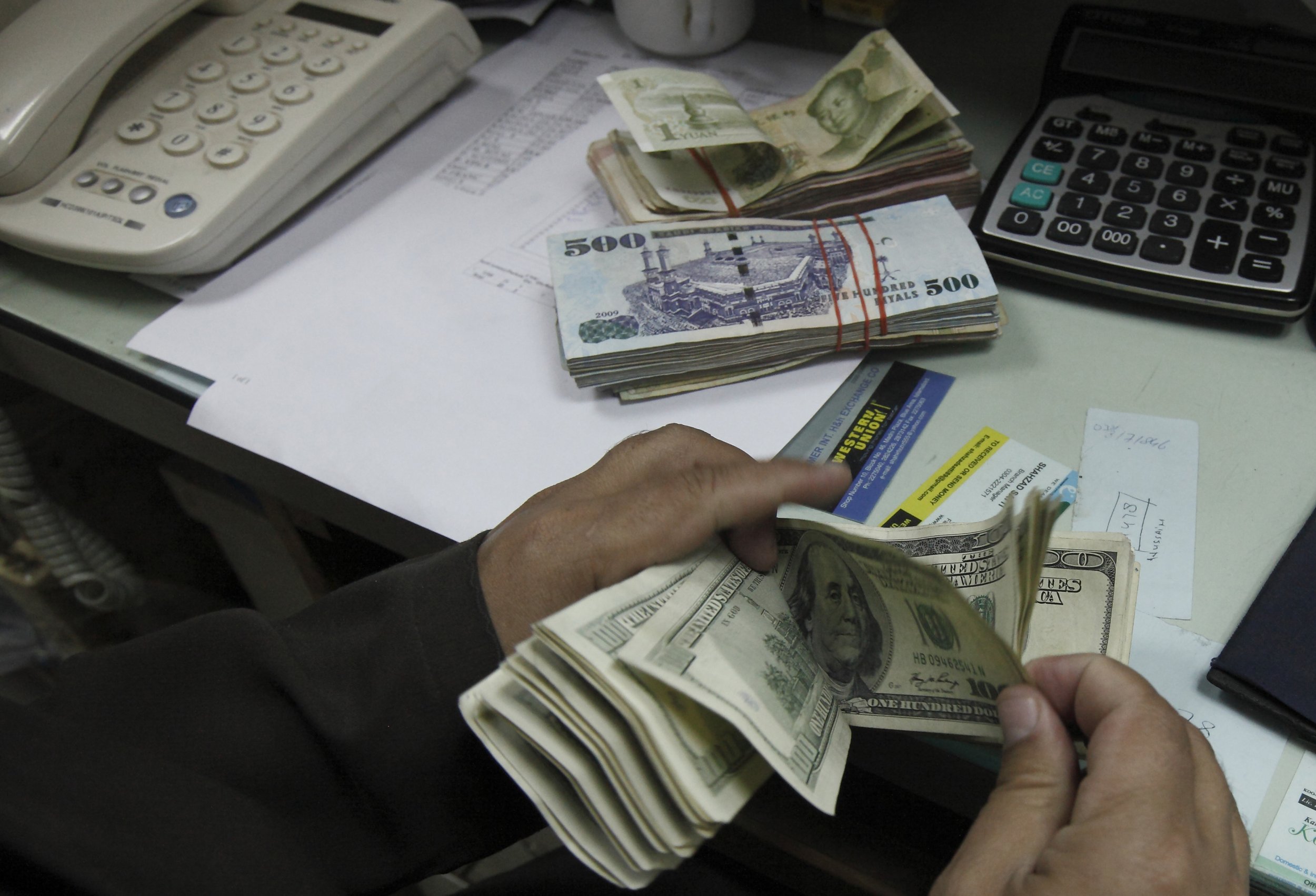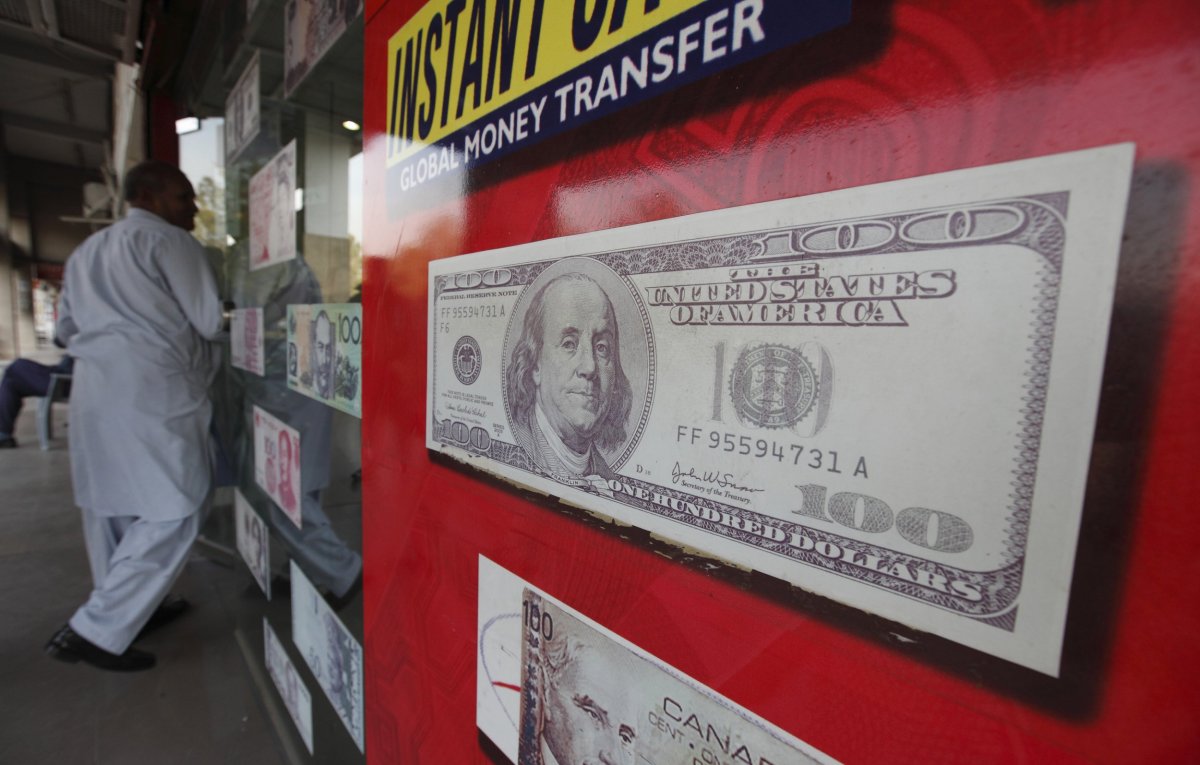
An ancient and sophisticated anonymous banking practice is facilitating the payment of jihadists' salaries in Iraq and Syria via a European network to avoid detection by authorities, according to Spanish intelligence officials.
Known as hawala, the system is being used as a conduit for the financing of fighters aligned to terror groups such as ISIS and the al-Qaeda-affiliated Nusra Front through a network of 250 to 300 shops - such as butchers, supermarkets and phone call centres - run by mostly Pakistani brokers across Spain.
A Spanish investigator, speaking on condition of anonymity, told the El Pais newspaper: "We know that the system is helping the jihadists in Syria." Another senior official, working in the intelligence department at Spain's national police, told the Spanish daily: "Some are helping their families by sending them money. ISIS has also become a company that provides jobs and pays its workers."
The secret network, which runs through Spanish cities such as Almeria, Barcelona, Bilbao, Madrid, Santander and Valencia among others, focuses on transferring money to Spanish jihadists situated in northern Syria with monthly sums of £518.5 ($800) given to a single fighter and £777 ($1,200) to a married fighter, officials revealed.
"We hadn't seen anything like this since the Afghan War. Not only do they recruit fighters here but they are also receiving money from here," a Spanish intelligence agent said. "The network has grown. We believe there are around 250 hawala establishments in all of Spain."
While Spain is the first country in Europe where it's been discovered that hawala is being used to fund terrorist activities, the system is practiced across Europe - usually where diasporas are found - meaning the continent could become a potential hub for financing terror, according to Richard Barrett, former British intelligence officer and senior vice president at the strategic security consultancy The Soufan Group.
"There will be hawalas all over the place. Hawaladars are very, very common," he says. "Let's say a terrorist attack costs somebody $9,000, I reckon you could get that anywhere in the world, pretty easily."

Hawala, which directly translates as 'transfer' in Arabic and is similar to the Chinese system of fei qian (flying money), is an effective value transfer system, which has its roots in the Middle East and South Asia and was created as a solution to long-distance trade when modern banking instruments were not available.
It consists of a trust-based network of hawaladars, essentially brokers, whose survival depends on their reputation. The charging of interest, known as Riba, is prohibited in Islam and any profit garnered through theft or taxation would lead to the greater price of losing the respect of the network and customers, says Loretta Napoleoni, a world-leading expert on the financing of terror and author of the book Islamist Phoenix, which charts the rise of the Islamic State.
The practice, which has been referred to as the 'working man's Bitcoin' and the 'terrorist's ATM', has survived the emergence of online banking, with $400bn (£258.9bn) exchanging hands every year, Dr Roger Ballard, hawala expert and director of the University of Manchester's Centre for Applied South Asian Studies (CASAS), estimates.
Many of these transactions are legitimate and consist of migrants, who have settled in Europe and North America, sending money home to their families in countries where banking systems are not as sophisticated, such as Somalia and Afghanistan, adds Ballard. It is even believed that hawala was used by Britain to fund its fighters in the 1880 Second Anglo-Afghan War, he notes, and is used today by western journalists travelling to remote areas in countries such as Pakistan.
The benefits of using this system are clear: the cost is minimal in comparison to traditional banking rates, as only a small commission to the hawaladars is paid; the transactions are fast as nothing tangible changes hands, only the value via a telephone call or fax between hawaladars (who settle debts through return transactions); and, most importantly, the brokers are trusted to ensure the money arrives at its intended destination.
As a consequence, this virtually untraceable practice has become attractive to those who wish to avoid both national and international financial authorities - such as regimes under banking sanctions (for example Iran, who have been accused of using hawala by the U.S. Treasury), blacklisted terror organisations and money launderers - as it allows for the movement of money under the radar, ignoring borders and leaving little to no paper trail.
Hawala bookkeeping, as recorded by the U.S. Treasury, does not register the identities of those using the practice but instead, transactions are created using passcodes, which are sent between all parties involved so the person retrieving the money can do so quickly and efficiently. There are no age restrictions on hawala and no identification is needed to make a transaction, according to Napoleoni.
The importance of hawala to the finances of terror groups is disputed. Luay al-Khatteeb, executive director of the Iraq Energy Institute (IEI), says that the transfer of money to terror groups through the practice is "a small issue" which is diverting attention from the "real financing of ISIS" by more local means of the oil trade, looting, the selling of antiquities, hostage-taking and the resulting ransoms and even bank heists.
However, while no evidence has surfaced that money transferred through the hawala system has contributed to an attack by ISIS or the Nusra Front, other terror groups and its members have been shown to exploit the practice for its aims.
In 2010, a U.S. court indicted Mohammad Younis for arranging the delivery of $7,000 in funds to the Times Square bomber, Faisal Shahzad, via the hawala system although there was no evidence that Younis had any knowledge of Shahzad's plot. Shahzad later admitted that the transaction had been arranged by associates of the Pakistani Taliban. The U.S. Treasury has also confirmed that the perpetrators of a number of 1993 bomb blasts in India utilised hawala to pay arms dealers for the materials used in the attacks.
Michael Chandler, former chairman of the UN's al-Qaeda Sanctions Monitoring Group, created after 9/11, says that the body "had indications that the Taliban were using hawala before people had even heard of al-Qaeda."
On the revelations that radical Islamists are receiving funds from this practice in Europe, Chandler admitted that there can be little doubt that hawala is being used to finance jihadist groups in the Middle East.
"I think it's highly likely that they will be receiving some of their funding via hawala. I think it is a perfectly sensible assumption to make," he asserts.
A spokesperson for the European Union's law enforcement agency confirmed that while the body has knowledge of the practice being "used for all kinds of transactions", the system of hawala itself "is not illegal" and therefore could not comment any further.
Going forward, the legality and scale of hawala indicates that the practice is likely to "continue to be a very easy way to send small amounts of money on a daily basis to the fighters" as it would be virtually "impossible" to regulate, Napoleoni says with confidence.
"If you give money to somebody it is your responsibility and if you trust this exchange then there is very little that anybody can do," she warns. "We don't know how much money is transferred through this system to fund terrorists, it is impossible."
Hawala experts themselves are split on the efforts that should be taken by authorities to tackle the misuse of the network. Forensic accountant Mark Jenner believes halawa must be regulated "in the same way as a bank" because it is a legal business, while Ballard warns that enforcement agencies and financial authorities simply do not have the resources to detect the terror money amongst the $400bn (£258.9bn) believed to be traded every year. "They would be looking for needles in haystacks."
Uncommon Knowledge
Newsweek is committed to challenging conventional wisdom and finding connections in the search for common ground.
Newsweek is committed to challenging conventional wisdom and finding connections in the search for common ground.
About the writer
Jack is International Security and Terrorism Correspondent for Newsweek.
Email: j.moore@newsweek.com
Encrypted email: jfxm@protonmail.com
Available on Whatsapp, Signal, Wickr, Telegram, Viber.
Twitter: @JFXM
Instagram: Read more
To read how Newsweek uses AI as a newsroom tool, Click here.








